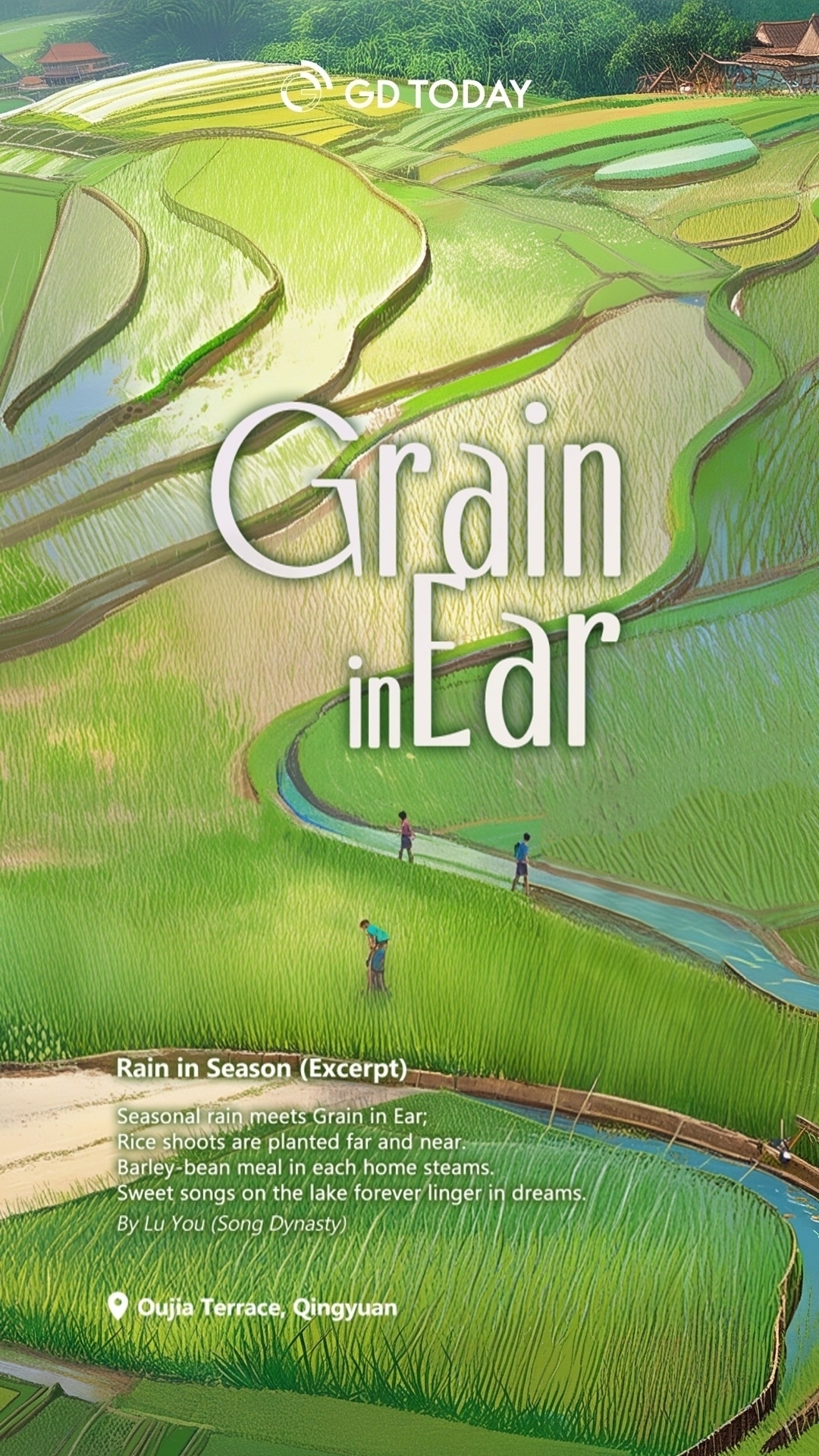Grain in Ear (Mangzhong 芒种), the ninth solar term of the Chinese lunar calendar, commences around June 5 annually. Its nomenclature encapsulates agricultural urgency: "mang" (芒) signifies the ripening of wheat and barley (grains with awns), while "zhong" (种) denotes the final opportunity for sowing rice and millet. This term originates from The Rites of Zhou (Zhou Li), underscoring its profound historical significance within China's agrarian culture.

In Guangdong, the adage "Mangzhong sow seeds, Dashu (Major Heat) transplant" serves as a guiding principle for farmers who diligently plant late rice amidst sweltering temperatures and frequent downpours.
Guangdong's humid rainy season fosters distinctive culinary traditions. The local saying "Mangzhong Festival, an abundance of food" reflects the seasonal profusion of sour plums, waxberries, and green mangoes. Among these, the Sanhua plum stands out, preserved with chili and salt to create sanhua li suan—a crisp, chilled snack believed to alleviate internal heat. Additionally, soups such as kapok and barley pork broth are consumed to counteract "dampness," while bitter melon and mung beans feature prominently in meals to dispel summer heat.
【宋】陆游
时雨及芒种,四野皆插秧。
家家麦饭美,处处菱歌长。
Rain in Season (Excerpt)
By Lu You (Song Dynasty)
Seasonal rain meets Grain in Ear;
Rice shoots are planted far and near.
Barley-bean meal in each home steams.
Sweet songs on the lake forever linger in dreams.
Author & Poster | Feng Huiting
Editor | Ouyang Yan, Wei Shen, James, Shen He
















